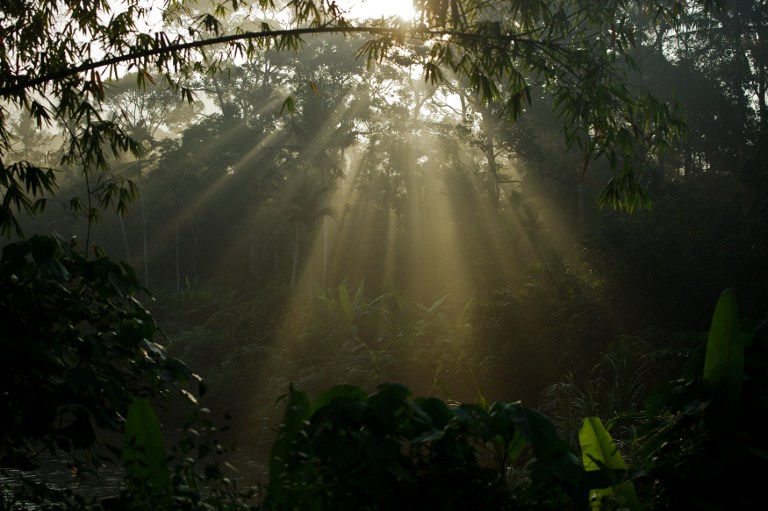KUALA LUMPUR, Nov 12 — Advocating for a controversial carbon-trading deal involving two million hectares of Sabah’s forests, Deputy Chief Minister Datuk Jeffrey Kitingan said that the project had gone through the state Cabinet and was approved.
Kitingan, who was witness to the signing of the deal with third-party Hoch Standard on October 30, admitted it was not publicised, but added that the NCA was supposed to be announced in January, by the state, when it is scheduled to talk about a policy initiative for a green economy; hence, the low-key signing.
“The CM was given the mandate by the Cabinet,” he said when speaking to Malay Mail.
“It was supposed to be kept discreet while we wait for it to be announced in January, and for us to ascertain whether they can deliver what they say, because it is a pilot project for them, and there are lots of checks that need to be done first,” he said, referring to Hoch Standard and Tierra Australia, the Singapore-based private firm and broker in the deal.
Kitingan denied that he has been hiding the deal from the public, saying that he has been speaking about carbon trading all along, but people have yet to grasp the concept.
“It is not a tangible asset, so I think people don’t understand. But I have been briefing people, on the ground, and I talk about it all the time. I even brought it up in Parliament,” he said.
“There’s nothing to hide. It has to be above board. Auditors need to be brought in to prove how much carbon is in the atmosphere, and both buyers and sellers need to be able to see what is going on at all times. As for the money, the United Nations requires that the profits be spent on the 17 sustainable development goals.”
Kitingan said that the article in conservation website Mongabay, which first exposed the deal, had chosen to emphasise that indigenous communities were left out of negotiations.
The article stated that leaders in Sabah had signed on October 30 a deal to market carbon and other natural capital from more than two million hectares (4.9 million acres) of the state’s forests for at least the next 100 years; granting 30 per cent of the profits to Australian and Singaporean companies while 70 per cent remained with the state.
Malay Mail later reported that the project was not finalised and could not proceed with funding as it did not have the designated area map or addendum to protect the state’s rights that is required to make the contract binding. It also has not touched on how to deal with native customary rights issues.
Defending the project, Kitingan said that the local communities would be mostly unaffected by the deal, as a large part of the forests was protected from commercial activities anyway.
He also said the state government was looking at ways to determine how small landholders could benefit from their land.
“We have been talking to people on the ground. Maybe not in a big way but we have been talking about it. I can assure you it will not affect the indigenous people,” he said.
“It is a protected forest anyway, but we want them to benefit directly from carbon trading also; from their kebun, they can produce oxygen. We want to expand so that everybody with land can benefit.”
Kitingan said that he was determined to see the project through, for the benefit of the state, underscoring its environmental, financial and political benefits.
“This is something that’s right and should be done. No more cutting down trees and contributing to climate change. We can generate our own income from assets that are rightfully ours — land and forests. We don’t want to continually be dependent on the federal government for handouts so we need to be able to earn revenue where we can,” he said.
“They are already talking about legislating carbon. If they can take our oil, then they can take this too.”
Kitingan said that taking on the project would give Sabah the chance of being a pioneer of sorts in this kind of collaboration, stressing it was a win-win deal for the state and global climate change.
Confident that it was the best way forward for Sabah by monetising its assets without actually giving them away, he said it was a good opportunity to get in while the global momentum is on climate change.
“In the past, the state would get revenue by logging its forests, but that is over now. Even with the Forest Management Unit, we get less than RM200 million in revenue now. It is so sad because what can we do with RM200 million?” he said.
He said that with over four million hectares of forests, Sabah would be capitalising on its natural assets in a low-risk, high-returns way, and earning up to RM3.2 billion per year by just putting up two million of its forest coverage to the project.
“That is just for carbon alone. Other aspects of nature capital, non-carbon, are far more valuable, but there isn’t a globally accepted formula to measure those yet. But those can fetch even more later, without the state losing anything in the process,” he said.
“It is creating value from what we have that is not generating any income, and without losing our assets. In fact, we are protecting it for future generations.”



















